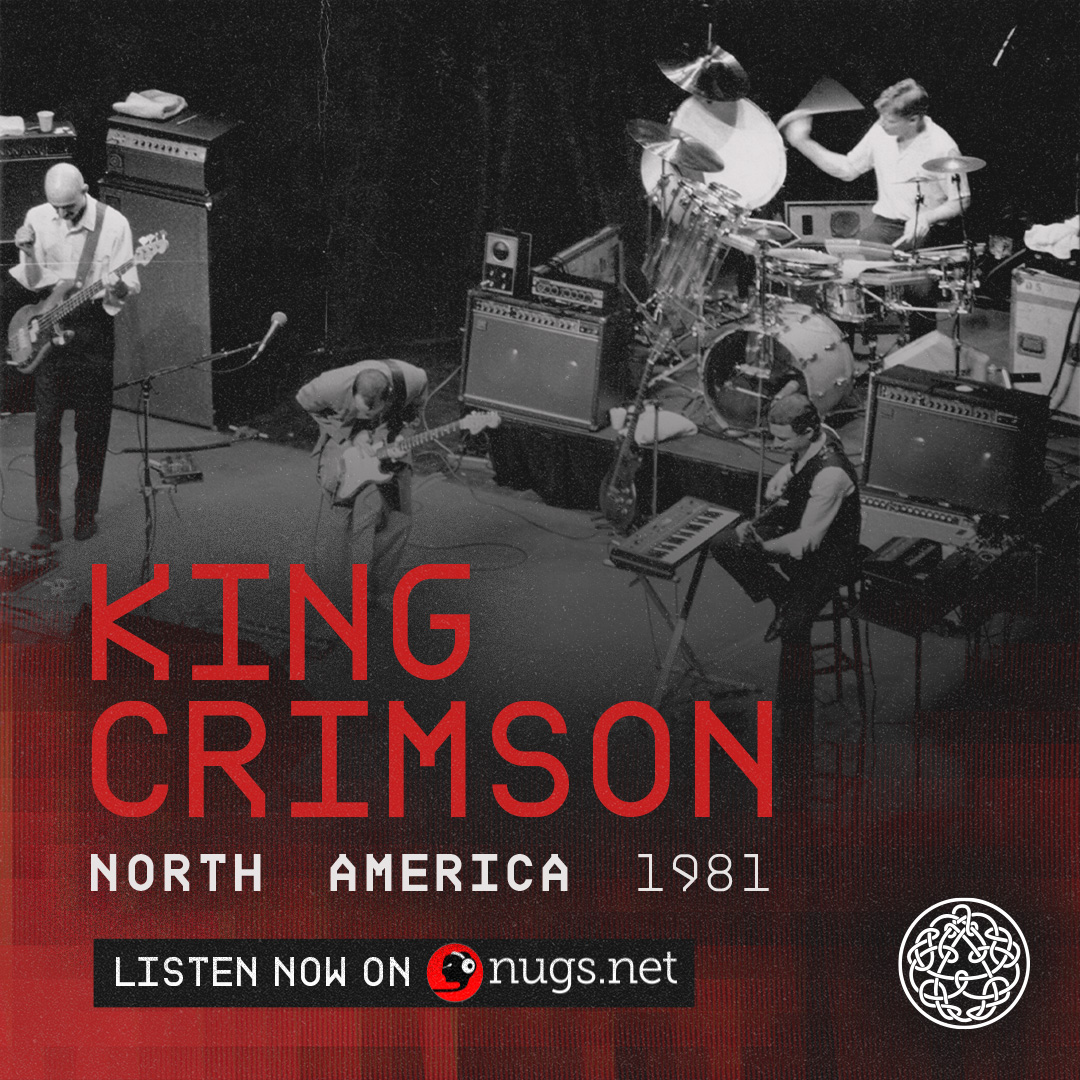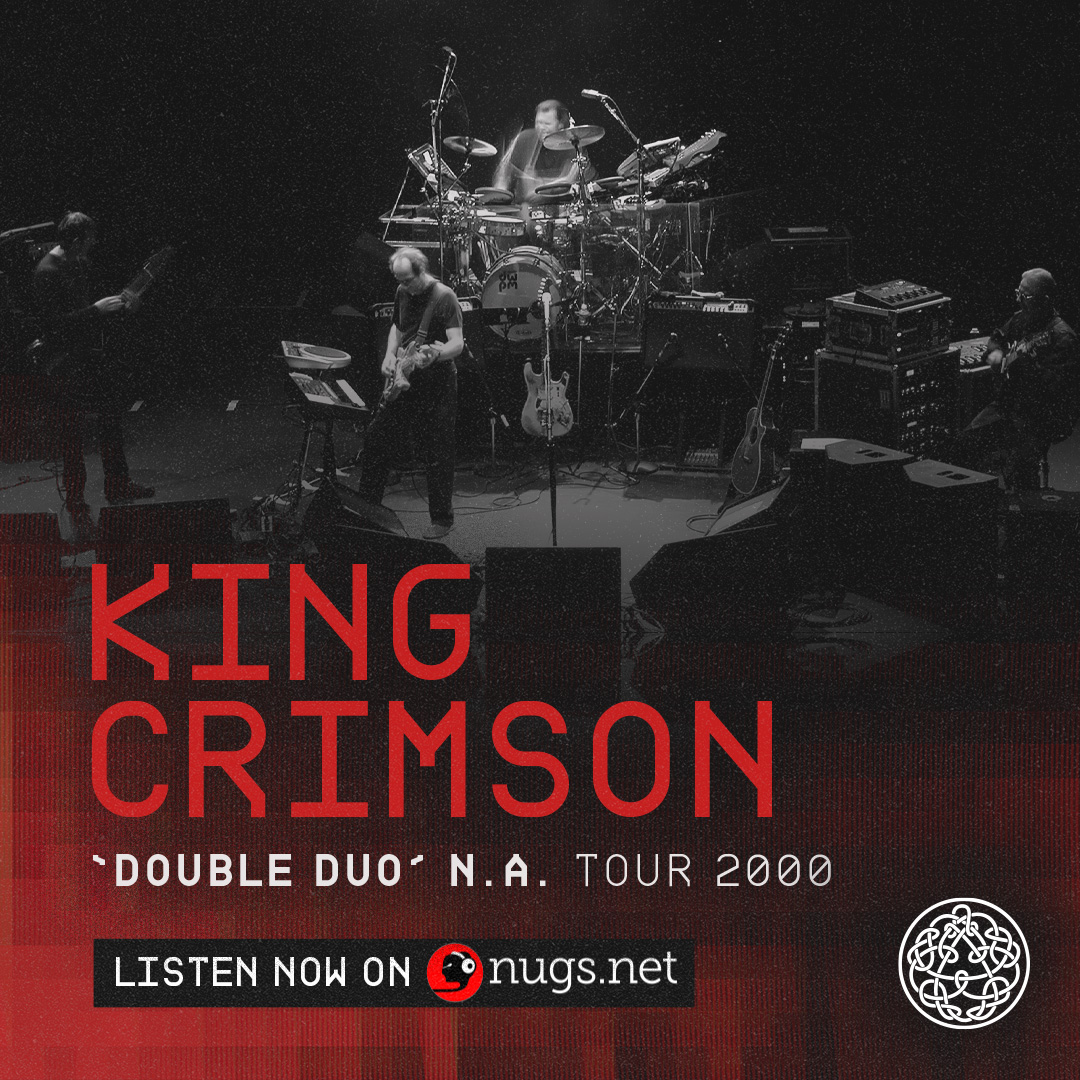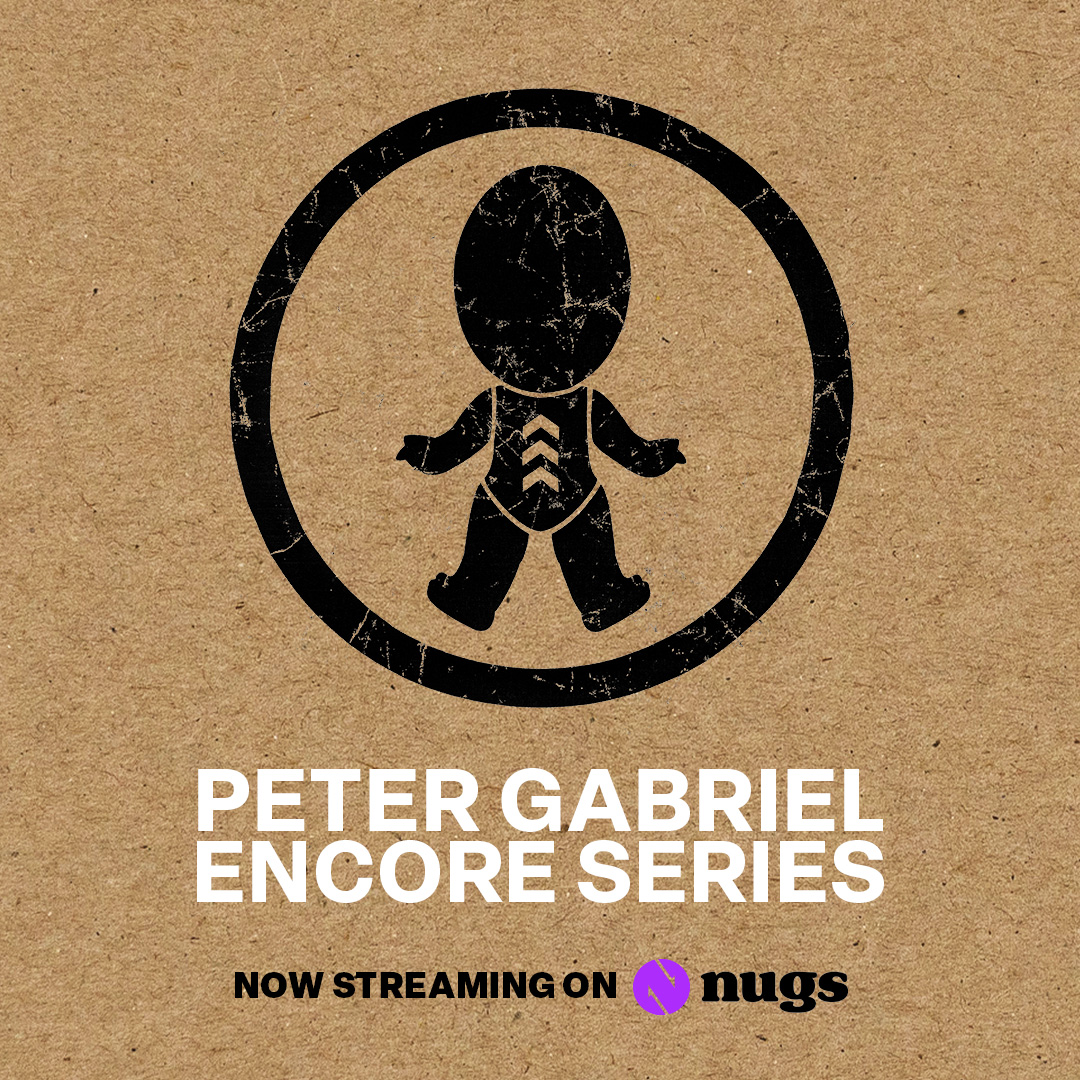King Crimson: North America 1981

Newly revitalized and hot off the release of ‘Discipline’ – 29 new shows from King Crimson’s 1981 North American tour are now streaming exclusively on nugs
KCIV Discipline
With Discipline, King Crimson reinvented itself in the 1980s, blending New Wave, minimalism, and intricate interlocking guitar work. The lineup for this era featured Robert Fripp (guitar), Adrian Belew (guitar, vocals), Tony Levin (bass, Chapman stick), and Bill Bruford (drums). Tracks like “Elephant Talk” and “Frame by Frame” became signature pieces, characterized by their complex rhythms and tightly woven guitar interplay.
“The next step is Discipline,” proclaimed the run-out groove of The League of Gentlemen’s self-titled album, released in February 1981. It partially chronicled the short-lived career of what Robert Fripp described as his “new wave instrumental dance band.” However, the next step took many by surprise. The newly revitalized King Crimson, when it emerged, bore some hallmarks of the League, but also introduced a bold new sound that reflected Fripp’s steady compositional evolution.
Fripp had been developing fast, cyclical guitar lines since the late 1960s, and hints of Discipline’s sound could be found in earlier King Crimson pieces like “Larks’ Tongues in Aspic, Part 1” and “Fracture,” as well as in his collaborations with Talking Heads (“I Zimbra”) and his solo work (“The Zero of the Signified”). Yet, when Discipline was released in September 1981, its taut, streamlined compositions and fresh harmonic ideas felt like a quantum leap from the King Crimson of the past. The shift surprised both fans and critics alike.
“Sure, this is King Crimson,” Fripp told Creem magazine. “But we’re not playing period pieces…It’s a modern rock band playing in 1981.” Initially named Discipline, it became clear to Fripp during rehearsals that the music being created was unmistakably King Crimson. “In the first week of rehearsal, I knew the band I was hearing was King Crimson,” he later reflected.
The new lineup saw Fripp and Bill Bruford joined by American musicians Tony Levin and Adrian Belew, a combination that embraced change and evolution. Fripp had originally assumed that Levin, a prolific session bassist, would be unavailable, but Levin jumped at the opportunity to work with Fripp again. “I had met Robert on the Peter Gabriel recording in 1976, and it was the chance to make music with him that got me to that first Crimson rehearsal,” Levin recalls.
Adrian Belew was the final piece of the puzzle. Fripp first encountered Belew during David Bowie’s Heroes tour and later at a Steve Reich concert. Belew’s distinct guitar work and stage presence allowed Fripp to realize the interlocking guitar parts he had long envisioned, exemplified in tracks like “Frame by Frame.” Belew’s experimental solos and unique vocal style added an entirely new dimension to King Crimson, with standout performances on tracks like “Thela Hun Ginjeet” and “Elephant Talk.”
The album Discipline was not only a departure but also a continuation of Crimson’s evolving sound. “Matte Kudasai,” a ballad with roots in The League of Gentlemen, evokes the poignant lyricism of earlier Crimson, while “The Sheltering Sky” combines ancient-sounding percussion with modern technology, creating an atmospheric, timeless piece.
The album’s title track and “Indiscipline” exemplify the band’s philosophy: independent, fragile musical lines that, when woven together, create something resilient and powerful. Much like the knot-work that adorns the album’s cover, Discipline was about interconnectedness and balance—an ambitious and challenging musical feat that King Crimson achieved effortlessly.
King Crimson debuted this lineup as Discipline on April 30, 1981, at Moles Club in Bath, but by the time they embarked on their October tour, they had reclaimed the King Crimson name. For Adrian Belew, this lineup holds a special place: “I think it was probably the best band in the world at the time! Heavy, light, fun, and dark—it was the perfect combination of things. That first record we did is the proof. It’s still groundbreaking.”
The same line-up released two more albums – Beat in 1982, from which the single Heartbeat was taken, and Three of a Perfect Pair in 1984, from which the single Sleepless was taken. Their final live show was in Montreal on 11th July 1984, and was released as the album “Absent Lovers”. A ‘missing fourth album’ of recordings from an abandoned session in Champaign-Urbana in 1983 were released in 2002 as part of the King Crimson Collectors Club series.
Stream the new releases along with the full King Crimson archival catalog and hundreds of other artists exclusively on nugs when you start a free 7-day trial.


